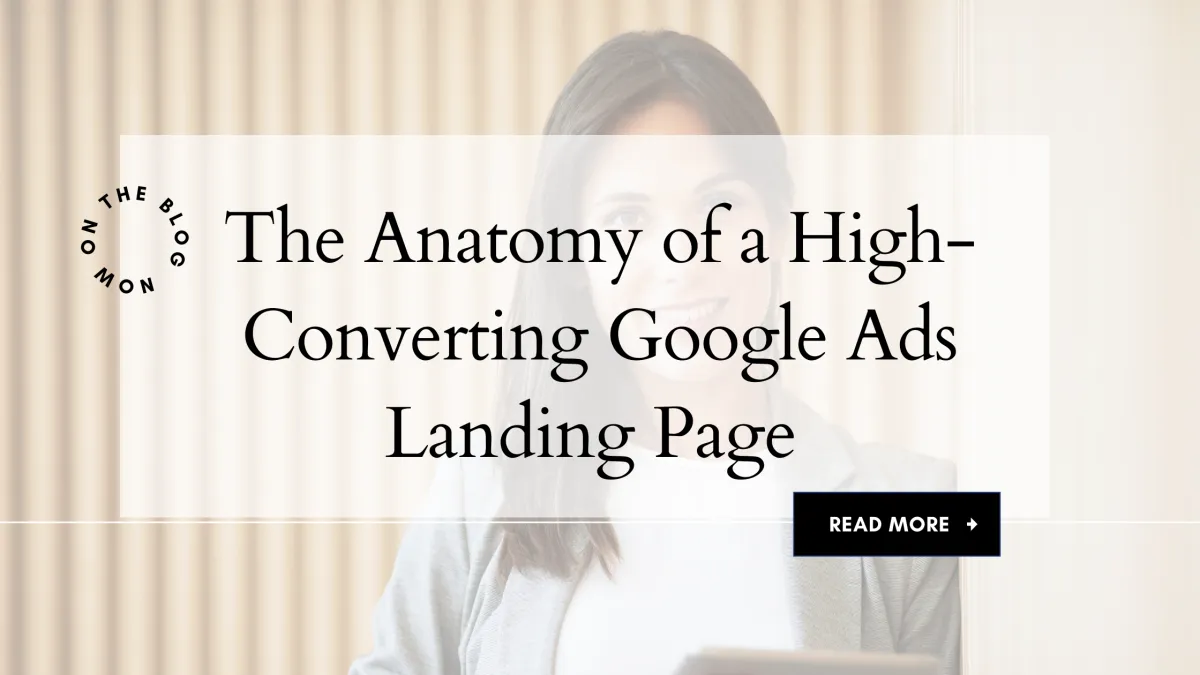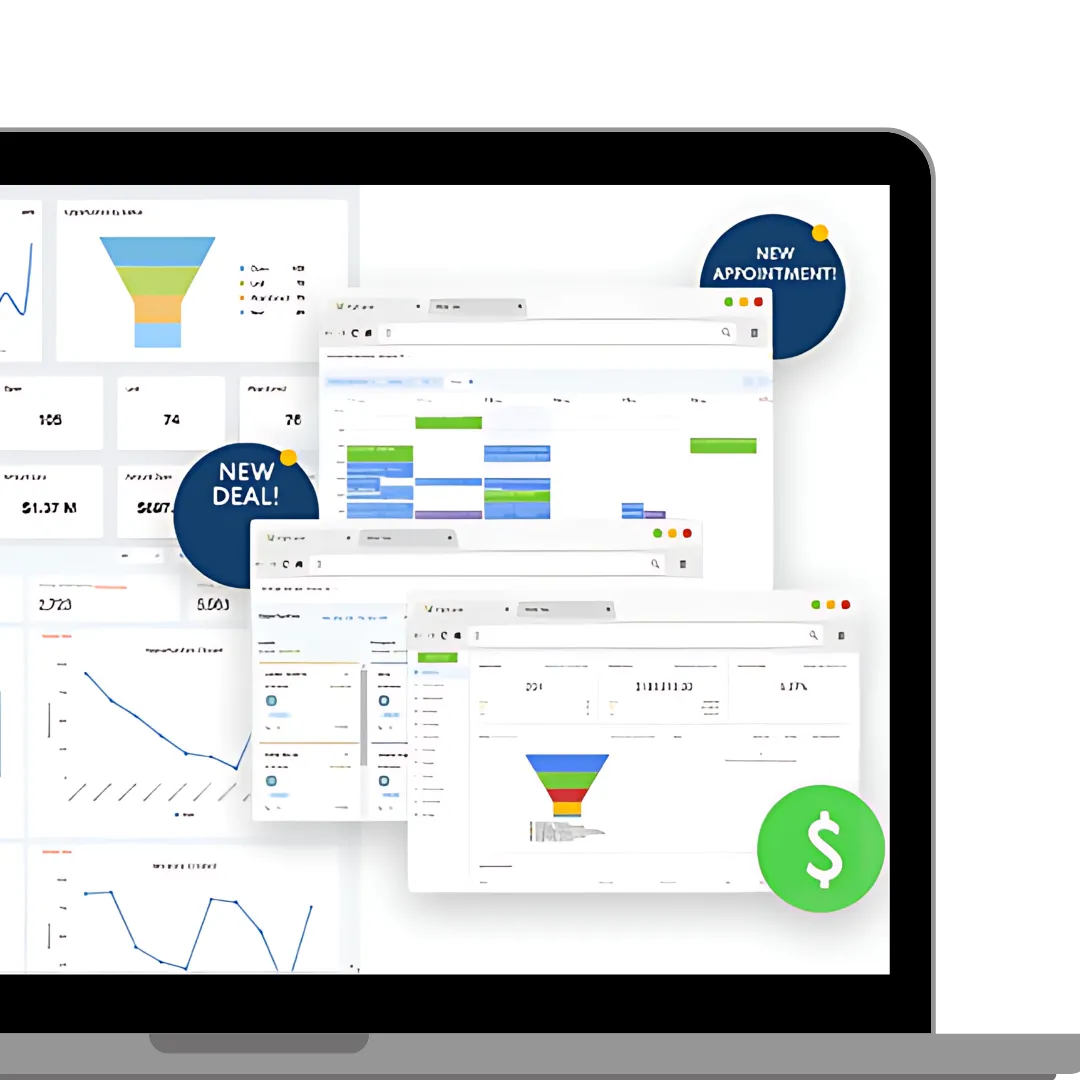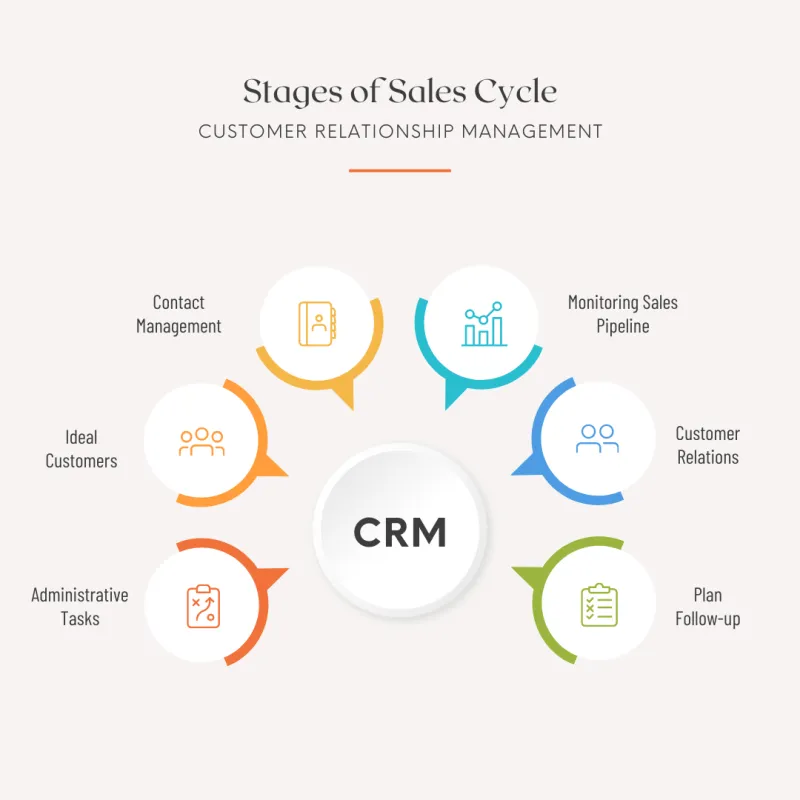
High-Converting Landing Page
The Anatomy of a High-Converting Google Ads Landing Page
Introduction
Imagine spending thousands of dollars on Google Ads to drive traffic to your website, only to watch visitors leave without converting. The issue? A weak landing page.
A high-converting Google Ads landing page is more than just a webpage; it is a focused sales tool designed to turn clicks into customers. Unlike a typical homepage, a landing page removes distractions and aims for one goal: getting visitors to take action.
In this guide, we will break down the components of an effective landing page, covering:
Core Conversion Elements (Headline, CTA, Form)
Persuasive and Trust-Building Tactics (Social Proof, Urgency)
Design and UX Best Practices (Mobile Optimization, Readability)
Technical Must-Haves (Speed, Tracking, A/B Testing)
By the end, you will know how to create a landing page that maximizes conversions and improves your Google Ads ROI.
1. Core Conversion Elements
A. Headline and Value Proposition
Your headline is the first thing visitors notice—it must:
Match the ad copy to lower bounce rates.
Be clear and focus on benefits (e.g., "Get 50% Off Your First Order").
Use strong words (e.g., "Proven," "Instant," "Guaranteed").
Example:
Weak: "Our Software Solutions"
Strong: "Boost Sales by 200% with AI-Powered CRM"
Subheadline: Adds more information with a secondary benefit.
Example: "Join 10,000+ businesses growing faster with our tool."
B. Strong Call-to-Action (CTA)
Your CTA opens the door to conversions. Best practices:
Use action-oriented text ("Start Free Trial," "Download Now").
Choose a contrasting color (e.g., orange for urgency, green for trust).
Place it multiple times (above the fold, mid-page, sticky bar).
Example:
[CTA Button Example: "Get My Free Quote Now" in bright orange]
C. Optimized Lead Capture Form
Forms should be brief and easy to complete:
Only request essential info (email and name for lead magnets).
Implement inline validation to avoid errors.
Include trust signals ("We never spam").
Bad Form Example:
First Name
Last Name
Email
Phone
Company
Job Title
Good Form Example:
Email (for a free ebook download)
2. Persuasive and Trust-Building Tactics
A. Social Proof
People trust customers more than brands. Use:
Testimonials (with real photos and names).
Case studies ("How [Company] Increased Sales by 150%").
Trust badges (SSL, PayPal, "As Seen In" logos).
Example:
"This tool saved us 20 hours a week!" – Sarah K., Marketing Director
B. Urgency and Scarcity
Fear of missing out drives action:
Countdown timers ("Offer expires in 2:14:59").
Limited stock alerts ("Only 3 spots left!").
Live notifications ("12 people bought today").
C. High-Quality Visuals
A hero image or video showing the product in action.
Before-and-after sliders (for fitness, beauty, home services).
Explainer videos (keep under 60 seconds).
3. Design and UX Best Practices
A. Minimalist, Clutter-Free Layout
Remove navigation menus to reduce distractions.
Use whitespace to guide attention to the CTA.
Ensure above-the-fold clarity (headline and CTA are visible immediately).
B. Mobile Optimization
Make buttons thumb-friendly (minimum 48x48px).
Ensure fast loading (under 3 seconds).
Use responsive design (test on all devices).
C. Readability
Use sans-serif fonts (Arial, Helvetica).
Body text should be 16px or larger.
Include bullet points and short paragraphs for easy scanning.
4. Technical Must-Haves
A. Fast Loading Speed
Compress images (use TinyPNG).
Lazy load off-screen content.
Use a CDN (Cloudflare) for global traffic.
B. Conversion Tracking
Implement Google Ads conversion tracking.
Use Google Analytics 4 (GA4) events.
Apply heatmaps (Hotjar) to understand user behavior.
C. A/B Testing
Test headlines, CTAs, images, and form fields.
Use Google Optimize or Unbounce.
Adjust based on data, not assumptions.
Final Thoughts
A high-converting Google Ads landing page is a well-organized system where every part works together to encourage action. By focusing on:
Clear messaging (headline and CTA)
Building trust (social proof, testimonials)
Smooth user experience (mobile-friendly, fast loading)
Data-driven improvements (A/B testing)
You will enhance conversions and get the most from your ad spending.
Need a landing page template?













